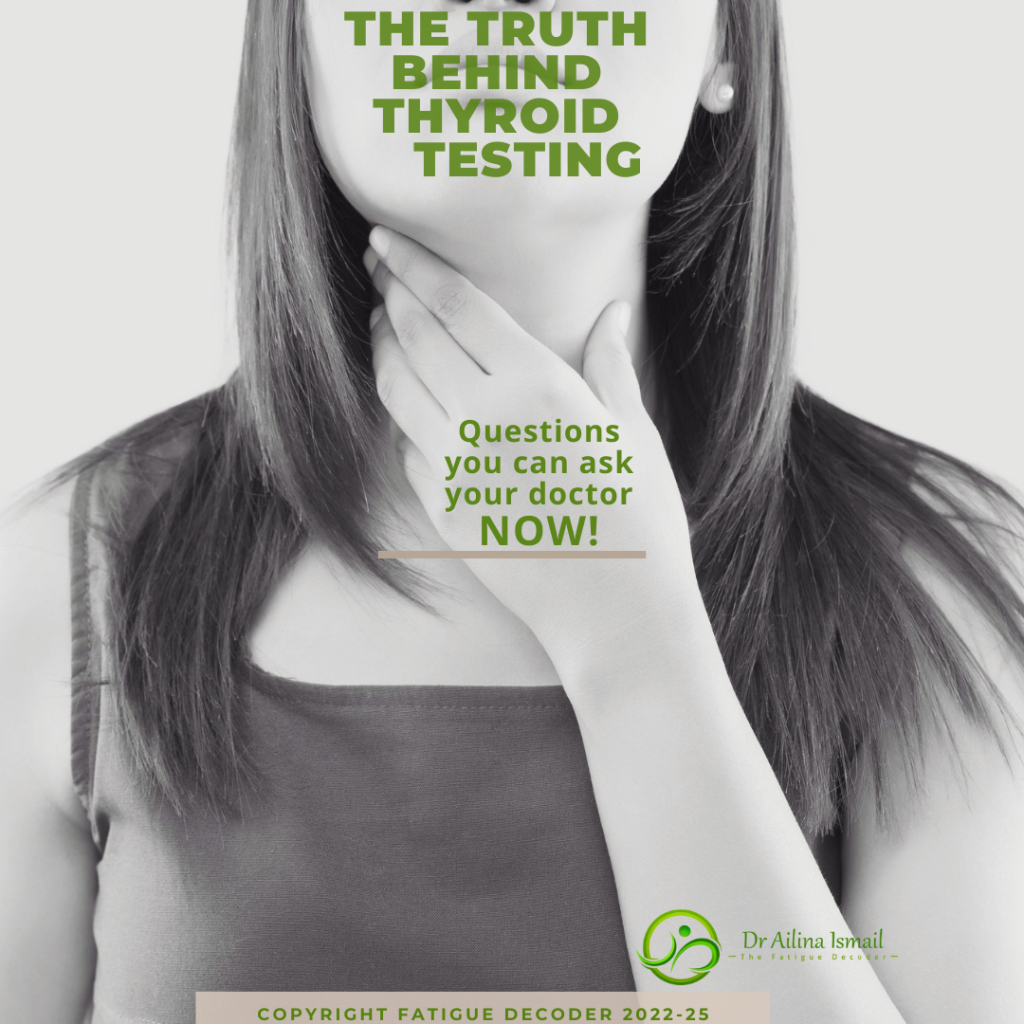
Your thyroid may be small, but its impact on your overall well-being is immense. Nestled in your neck like a butterfly, this gland regulates your energy production, affecting everything from your mood to your metabolism. Yet, when symptoms like fatigue, body aches, and brain fog arise, the thyroid often becomes a prime suspect.
But how do you determine if your thyroid is truly to blame? That’s where understanding thyroid testing becomes essential. Let’s delve into the intricacies of thyroid panels and what questions you should be asking your doctor.
The Anatomy of a Thyroid Panel
- TSH (Thyroid Stimulating Hormone): This hormone, produced by the pituitary gland in your brain, acts as a messenger, signaling your thyroid to produce more or less hormones based on your body’s needs.
- Free T4 (Thyroxine): As the inactive form of thyroid hormone, T4 is produced solely by the thyroid gland. It serves as a reservoir for the active hormone, T3, and is converted as needed.
- Free T3 (Triiodothyronine): The active thyroid hormone, T3, is responsible for revving up your metabolism and fueling your cells with energy. While a portion is produced directly by the thyroid gland, most is converted from T4 in peripheral tissues.
- Reverse T3: In times of stress, your body may produce reverse T3 instead of the active form, inhibiting metabolism and conserving energy.
- Thyroid Antibodies: Elevated levels of antibodies indicate that your immune system is attacking your thyroid, potentially leading to autoimmune thyroid conditions like Hashimoto’s disease.
Nutrient Deficiencies and Thyroid Health
Ensuring optimal thyroid function requires more than just hormone levels. Nutrients play a crucial role in supporting thyroid health, and deficiencies can hinder hormone production and conversion. Key nutrients to consider include:
- Iron: Vital for thyroid hormone synthesis and transport, iron deficiency can impair thyroid function.
- Zinc: Essential for converting inactive T4 into active T3, zinc deficiency may hinder thyroid hormone production.
- Selenium: As a cofactor for enzymes involved in thyroid hormone metabolism, selenium is crucial for thyroid health.
- Vitamin D: Low levels of vitamin D are associated with thyroid dysfunction and autoimmune thyroid diseases.
- Vitamin A: Necessary for proper thyroid signaling, vitamin A deficiency can disrupt thyroid hormone activity.
- Iodine: A deficiency in iodine, a key component of thyroid hormones, can lead to hypothyroidism.
Beyond Thyroid Panels: Exploring Root Causes
For those with persistent symptoms, delving deeper into potential root causes is essential. Additional tests and considerations may include:
- Coeliac Disease Panel: Autoimmune conditions like coeliac disease can often coexist with thyroid disorders.
- Food Sensitivity Testing: Identifying and eliminating trigger foods can alleviate inflammation and support thyroid health.
- Toxin Exposure Assessment: Environmental toxins can disrupt thyroid function and exacerbate symptoms.
- Gut Health Testing: Gut imbalances, such as small intestinal bacterial overgrowth (SIBO) or dysbiosis, can impact thyroid health.
Understanding your thyroid function goes beyond a simple blood test. By asking the right questions and exploring comprehensive testing options, you can uncover the underlying factors contributing to your symptoms and pave the way for optimal thyroid health.
Interpreting Thyroid Test Results: Beyond Reference Ranges
It’s important to note that reference ranges provided by laboratories may not always reflect optimal thyroid function. To ensure accurate interpretation, consult with a functional medicine doctor who understands the nuances of thyroid health. Together, you can assess your results in the context of your symptoms and lifestyle factors, guiding you towards personalized interventions for optimal well-being.
Ready to decode the mysteries of your thyroid function? Download our comprehensive checklist today and take the first step towards reclaiming your energy and vitality.
Download Now to Discover the Truth Behind Thyroid Testing!
